The provocative actions and statements from Turkey in recent times has provoked a strong reaction, even from countries that have in the past shown a "favorably neutral" attitude towards Turkey. This happened mainly in the European Union, with French President Emmanuel Macron leading the way, who pleasantly surprised Greece with his dynamism and consistency in his words and deeds.
The other big EU country, Germany, just a few days ago took a clear position against the Turkish provocations against Greece and Cyprus. It was preceded by an ambiguous positions by Chancellor Angela Merkel and the failed attempt of mediation by German Foreign Minister Haiko Maas. Many spoke of Germany's commercial interests in Turkey, Merkel's fear of voters of Turkish descent turning against her, etc., considering it a conjuncturally favorable attitude of Germany towards Turkey.
But this is not the case. Germany, since the formation of the Reich, or the German Empire, has almost always been on the side of the Ottoman Empire and Turkey.
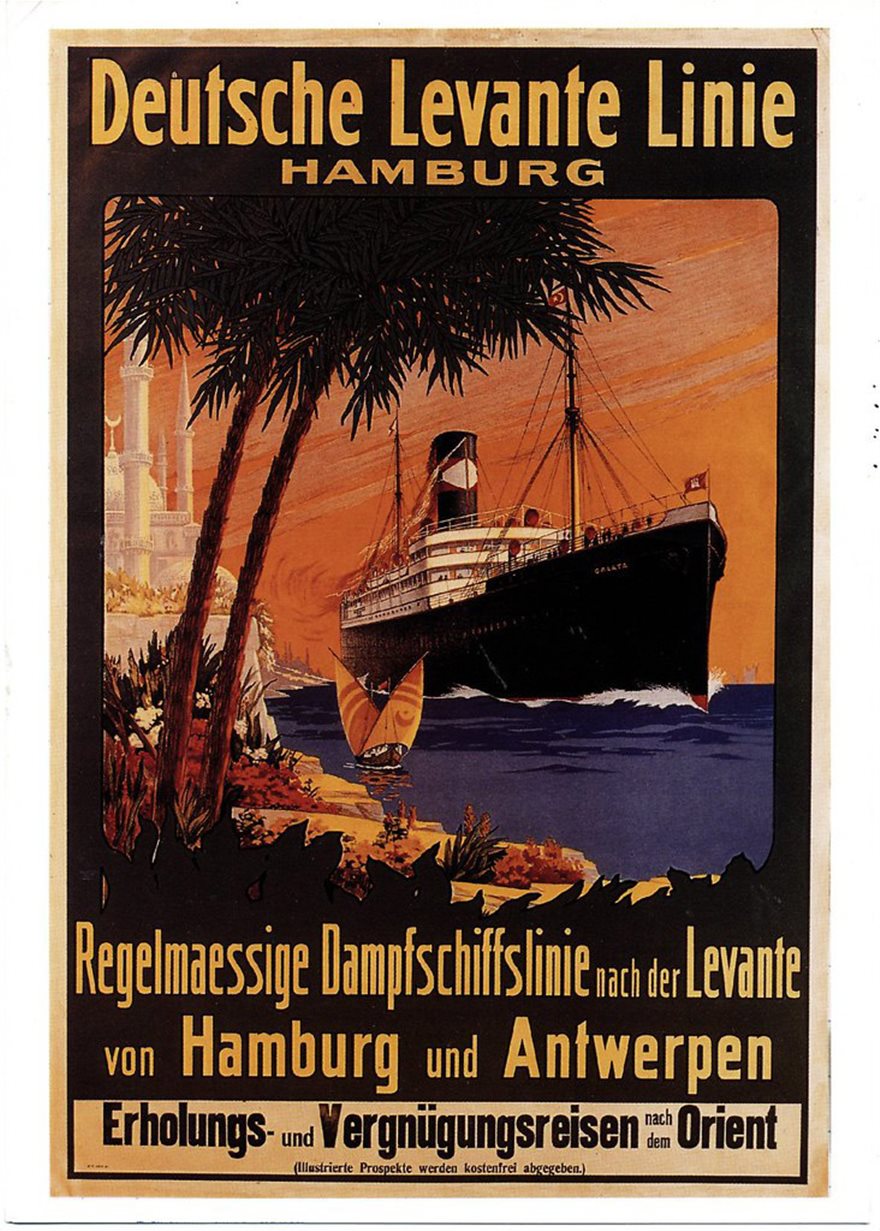
The proclamation of the German Empire - The penetration of Germany in the East
On January 18, 1871, in the Hall of Mirrors of Versailles, the German Empire was proclaimed. With the Peace of Frankfurt (May 10, 1871), France lost Alsace and part of Lorraine and was forced to pay 5 billion francs in war reparations, while Prussia, on the other hand, emerged as the only power capable of directing German unification. Thus, 25 states were united under the leadership of William I, who was recognized as an additional emperor by the Constitution of April 16, 1871. Otto von Bismarck, Prime Minister of Prussia since 1862, Chancellor of the North German Confederation since 1867, led the unification of Germany and became the first Chancellor (Reichskanzier) of the German Empire.
If we study the History of the Greek Revolution of 1821, we will see that most of the Philhellenes came from the states and regions of present-day Germany.
The rise to the throne of Greece of Otto, son of the ardent Philhellene Louis, King of Bavaria, played an important role in the continuation of the Philhellenic current in the later German states.
After the ousting of Otto (1862), the rise to the throne of George I and the consequent turn of Greece towards the United Kingdom, there is a turn of German policy in the East. Its main goal is the marginalization of the British and the French, for whom the East was a privileged field until then, but along with the Anglo-French, Greece is dragged along, which had not just economic interests, but solid populations in Thrace and Asia Minor. Asia…
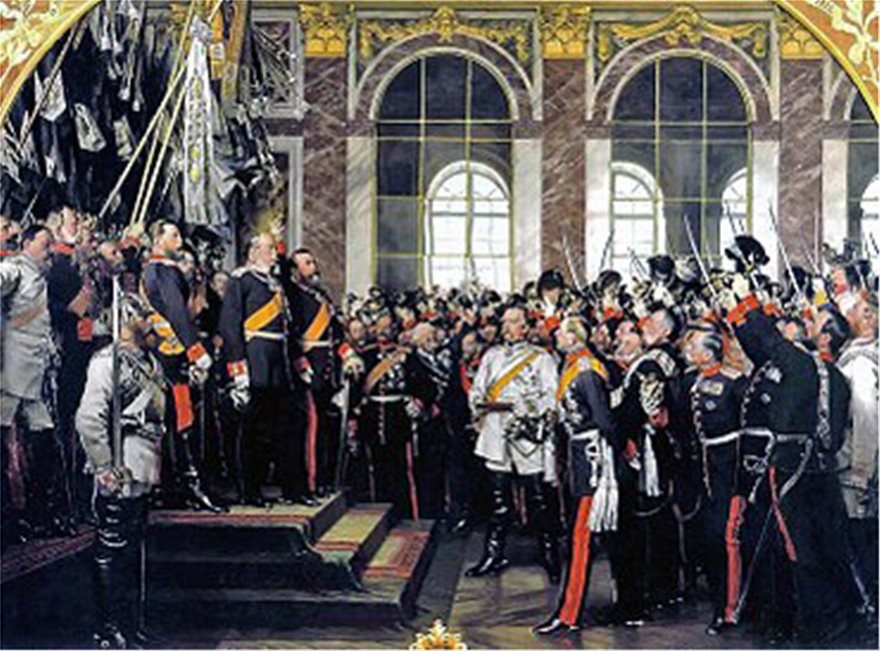
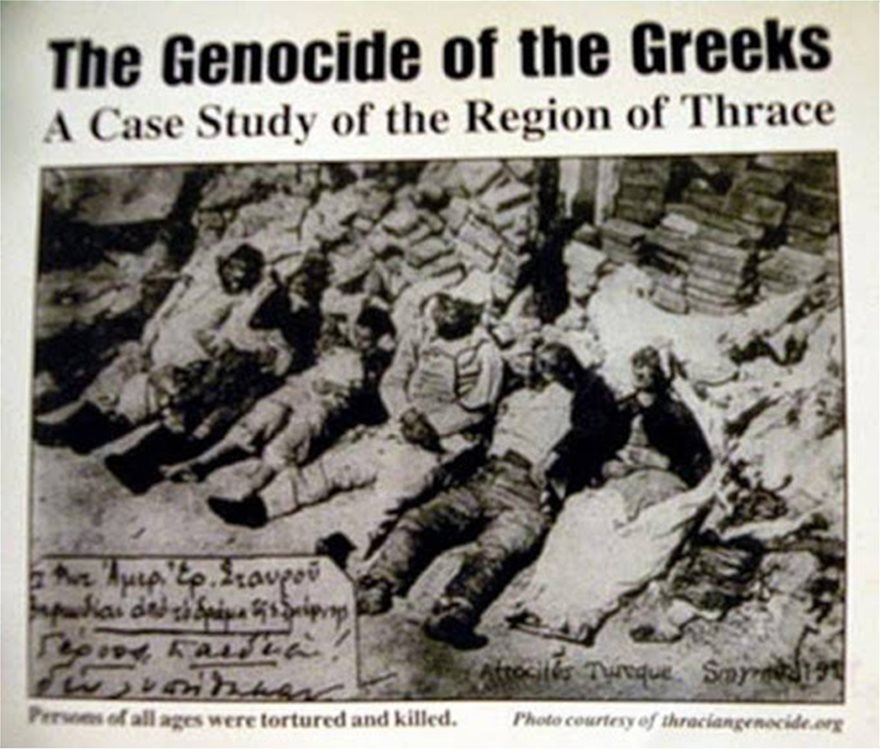
German pastors in Istanbul - Germany takes over the railways of the Ottoman Empire
In 1867, the Freemasons of Wittenberg appeared in Constantinople, led by Pastor Christopher Hoffman. Thus began the educational propaganda.
They open schools and churches and invite the common people to learn German, for a hefty fee!
Within a year, in Pera, there were many students in German schools. At the same time, Dr. Kerger arrives and writes his famous book "Asia Minor, a field of German colonization".
By 1887, the Germans were able to penetrate the upper echelons of the Ottoman Empire. Abdul Hamid became an ardent friend of the Germans.
The German money had an effect on the Ottoman rulers and the bloodthirsty Sultan was overly flattered by Bismarck's benevolence and friendship. While the rest of Europe was outraged by the Ottoman atrocities against the Christians, in Germany there were rave reviews about them. In 1889, German Emperor William II, better known as Kaiser, visited Constantinople and awarded hundreds of medals to Turkish titleholders.
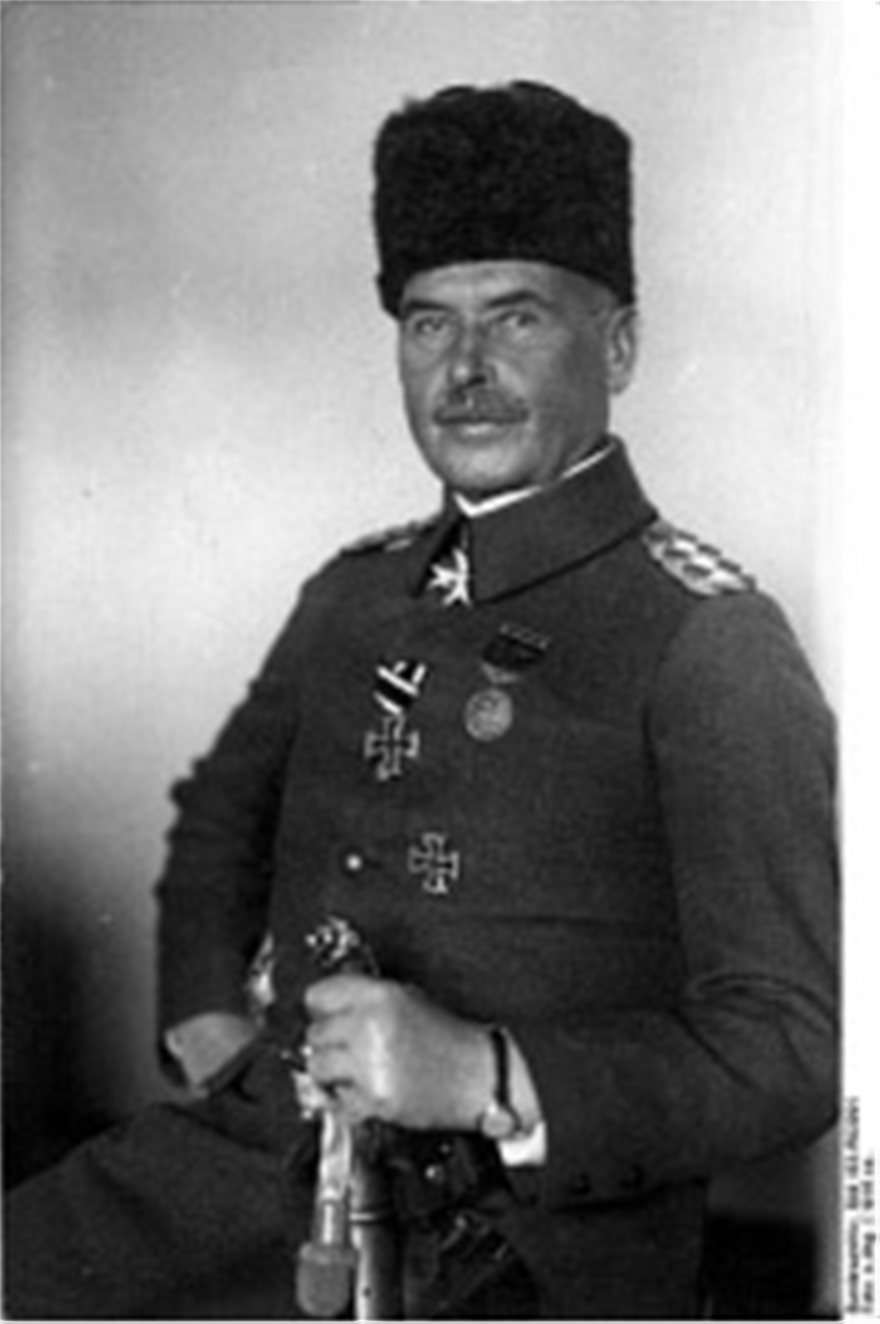

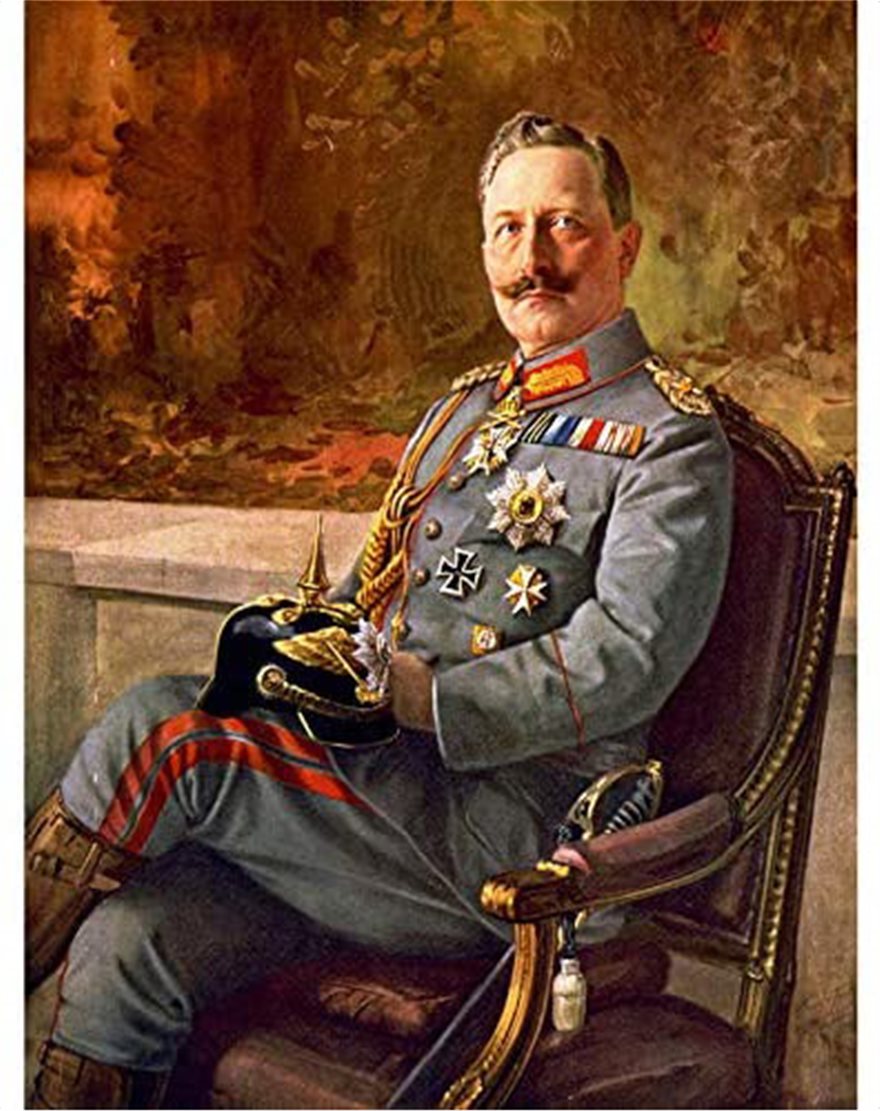
Military cooperation between the two empires followed. The gates of the Berlin Military Academy were opened to Turkish officers, while German General von Goltz undertook to reorganize the Ottoman army. From 1887, the Germans, through bribery to Ottoman officials, literally snatched the Haidar Pasha-Nicomedia railway line from the British and extended it to Eskisehir (1893) and Ankara. The final destination of the railway was Baghdad. Initially it extends to Konya and then, as all obstacles disappear, it continues towards Baghdad. As Michael Rodas writes, "the German ambassador to Constantinople, Baron Marshall, has become a foreman and a roller coaster." In 1887, Kaiser visits Constantinople again and from there goes to Damascus and then to Palestine, for a pilgrimage to the Holy Land. At the same time, the railway line Mersina-Adana, which was built by the British, falls into the hands of the Germans.
On the English railways, thousands of expatriates worked in higher and lower positions. However, stationmasters, telegraph clerks, inspectors, ticket sellers and storekeepers were expelled by the Germans. They were all on the street with their families. Germans, Turks and Jews took their places.
But von Goltz, now a pasha, declared that he would bury Greece at strategic points in Macedonia and Thessaly, and in the unfortunate war of 1897, the Turkish army was well equipped with Mauser and Krupp weapons made in Germany.
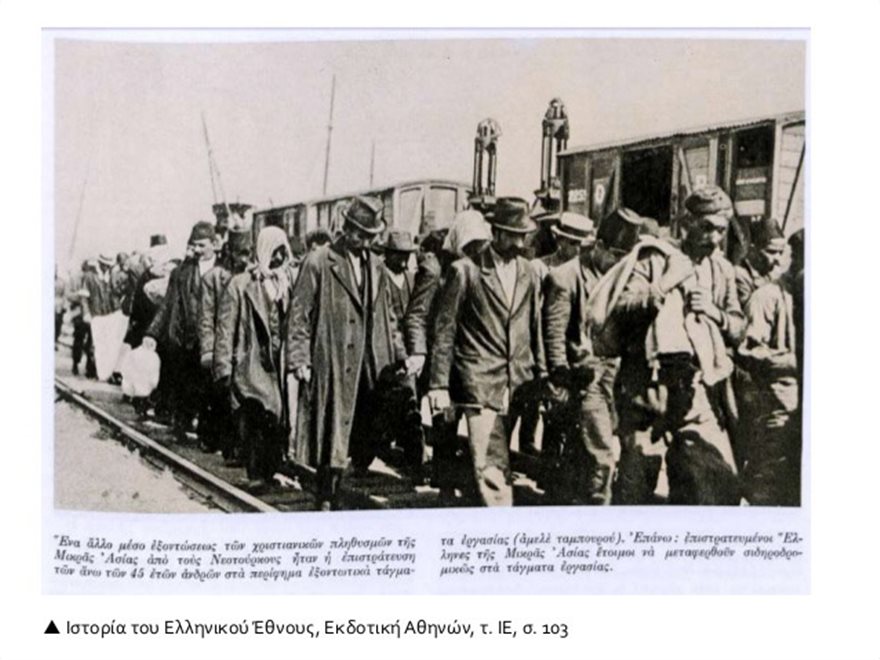
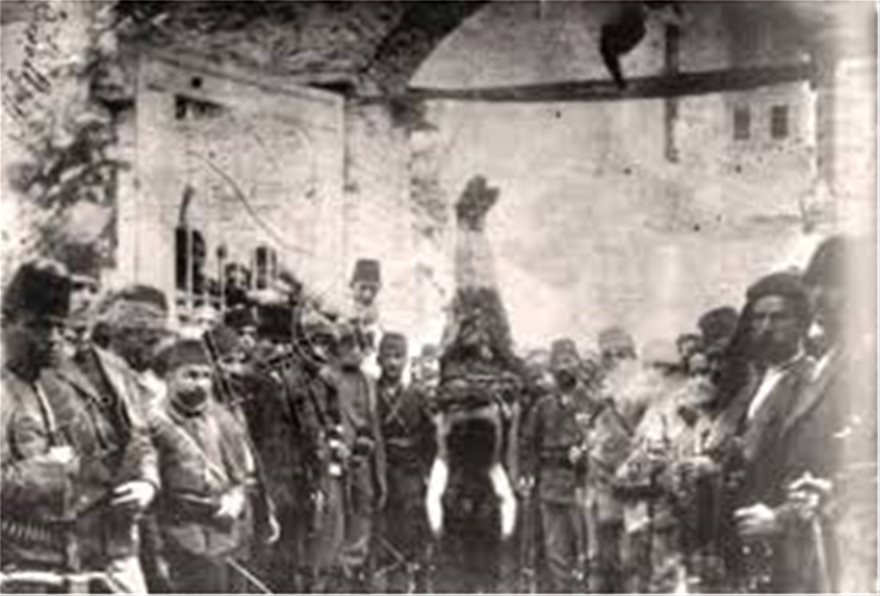
At the same time, there is a strong mood for thousands of Germans to travel to the East. In 1902, the railway arrives in Baghdad and the Kaiser's big dream comes true. But this alone is not enough.
The British and the French must be completely expelled from the Ottoman lands and the Greeks must be crushed.
A German traveler, writes characteristically in his book "How will Turkey Live"? The answer is, with the help of Germany. The Constantinople Telephone Company passes from the British to the Germans, as does the Belgian tram company and the British Tunnel Company. The plumbing works of Mesopotamia, which were done by the British, stopped, while the same happened with the construction of roads by French companies in Asia Minor.
Following the completion of the Baghdad railway, the large Turkish steamships of the Hamburg company "Deutsche Levante Linie" appear in the ports of Constantinople, Smyrna, the Black Sea and Thessaloniki, which were under Turkish occupation - they had a discount of 60% on the other companies (English and French).
The next target of the Germans - the Greeks.
In 1904, von Mosewius, director of the "National Bank for Germany", came to Greece and persuaded the then governor of the "National Bank", Stefano Strait, to establish the "Bank of the East."
Strait accepted, with the condition that the majority on the Board of the Bank were Greek. Following the acceptance of the term by the Germans, branches of the Bank were established in Constantinople, Thessaloniki, Smyrna, Alexandria and Cairo. The capital of the "Bank of the East" was set at 10,000,000 francs. In each branch of the Bank, there had to be a Greek director and a German.
Within a year, the "Bank of the East" is making incredible progress and the need arises to increase its share capital. The Germans agree to take part in the increase, but demand that the majority of the new council be made up of Germans. This resulted in a rupture between the two sides. The "Eastern Bank" of Greece is obliged not to establish branches in Constantinople, and the new "German Bank of the East" not to establish branches in Smyrna, Constantinople and Egypt.
But it opens new branches in Constantinople, giving colossal and incredible credits to anyone interested. The crisis of 1907, however, brought credit institutions to their knees and closed thousands of stores.
In the meantime, however, Germans and Austrians set up new banks in Turkey. The well-known "Deutsche Bank" and the "Viner Bank Ferain". The Austrians (recall that until World War I the Austro-Hungarian Empire existed), had targeted Thessaloniki. So they founded the "Bank of Thessaloniki" with many branches in Macedonia and Thrace. The Germans, on the other hand, set up several companies in Syria and Palestine, the Deutsche Palestinian Bank.
At the same time, with tempting offers, the Germans are invited to visit the East with the floating giants of the "Deutsche Levante Linie". But things are not always idyllic…
In January 1914, the daughter of the German General Liman Pasha with her fiancé, a young German officer, and two of her friends went for a walk in Beikos. There, Turkish soldiers who were in a bestial condition, caught and tied the young German and "treated the three girls very badly", as M. Rodas writes. After this tragic event, Liman Pasha decided to leave Constantinople.
Kaiser's order from Berlin, however, did not allow him to carry out his decision. His daughter's fiancé, unable to stay in Constantinople or return to Germany, committed suicide at the Pera Palace Hotel. As for Liman, the Ottoman government gave him a huge compensation for what happened in Beikos.
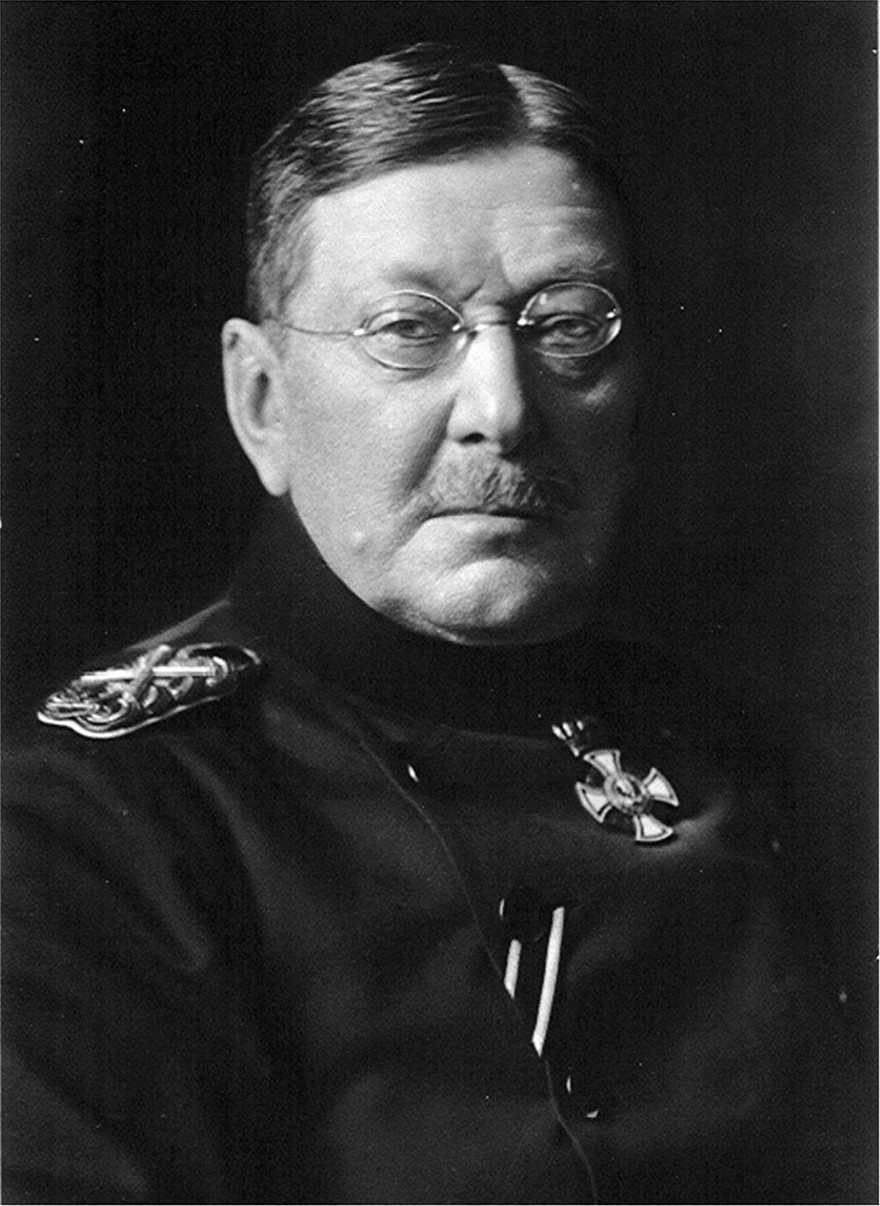
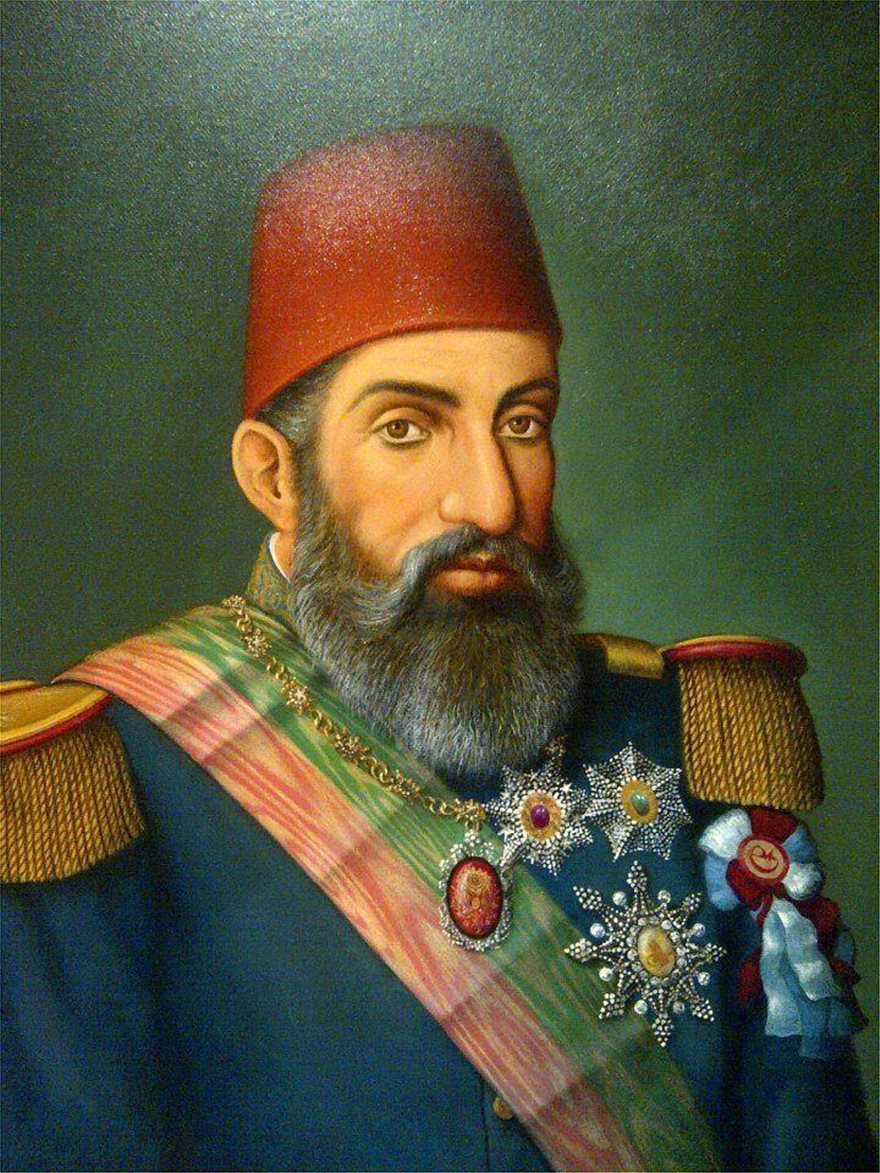
Germany and the New Turks
In July 1908, the New Turkish movement, which had been methodically prepared by the "Union and Progress" committee, started from Resna (Resen) in Macedonia, a town near Megali Prespa. On 10/7/1908, Abdul Hamid was forced to grant a Constitution to the whole empire. There was intense enthusiasm of the people for the domination of the New Turks.
Among them, of course, were the Greeks who were under the Ottoman yoke. However, things were not so idyllic.
An important New Turk official, Dr. Nazim, in an interview in September 1908 with the journalist Michael Argyropoulos in Smyrna, stated that all New Turks aimed at a pan-Islamic policy and the removal of any foreign influence from their state.
As early as 1908, under the pretext of the Cretan question, the persecutions of the Greeks in Constantinople, Thessaloniki and Smyrna began. Greeks are beaten, robbed and thrown into Turkish dungeons. An enraged mob chases Greek merchants from the interior of Asia Minor to the coast.
What is Germany's role in these atrocities?
Led by Baron Marshall, thousands of German secret agents are literally plowing Asia Minor and inciting persecution of Greeks.
Deutsche Bank generously finances Turkish citizens. It is characteristic that in just one day in the winter of 1908, 200 (!) German stores opened, large and small. Thousands of Germans and Austrians arrive, often for free, on German ships in the East.
In Smyrna, many Greek associations were founded after 1908, which would later form the All-Labor Union with a program and an address.
Greek-Turkish relations are disrupted. Import of Greek goods into Turkey was banned. Posters and icons of King George I were torn down and trampled on. For a year, the steamships of the company Pantaleontos remain immobilized in Turkish ports.
German agents, in their conversations with the Turks, wonder "why do not they seize or buy the shops of the Giaourids"?
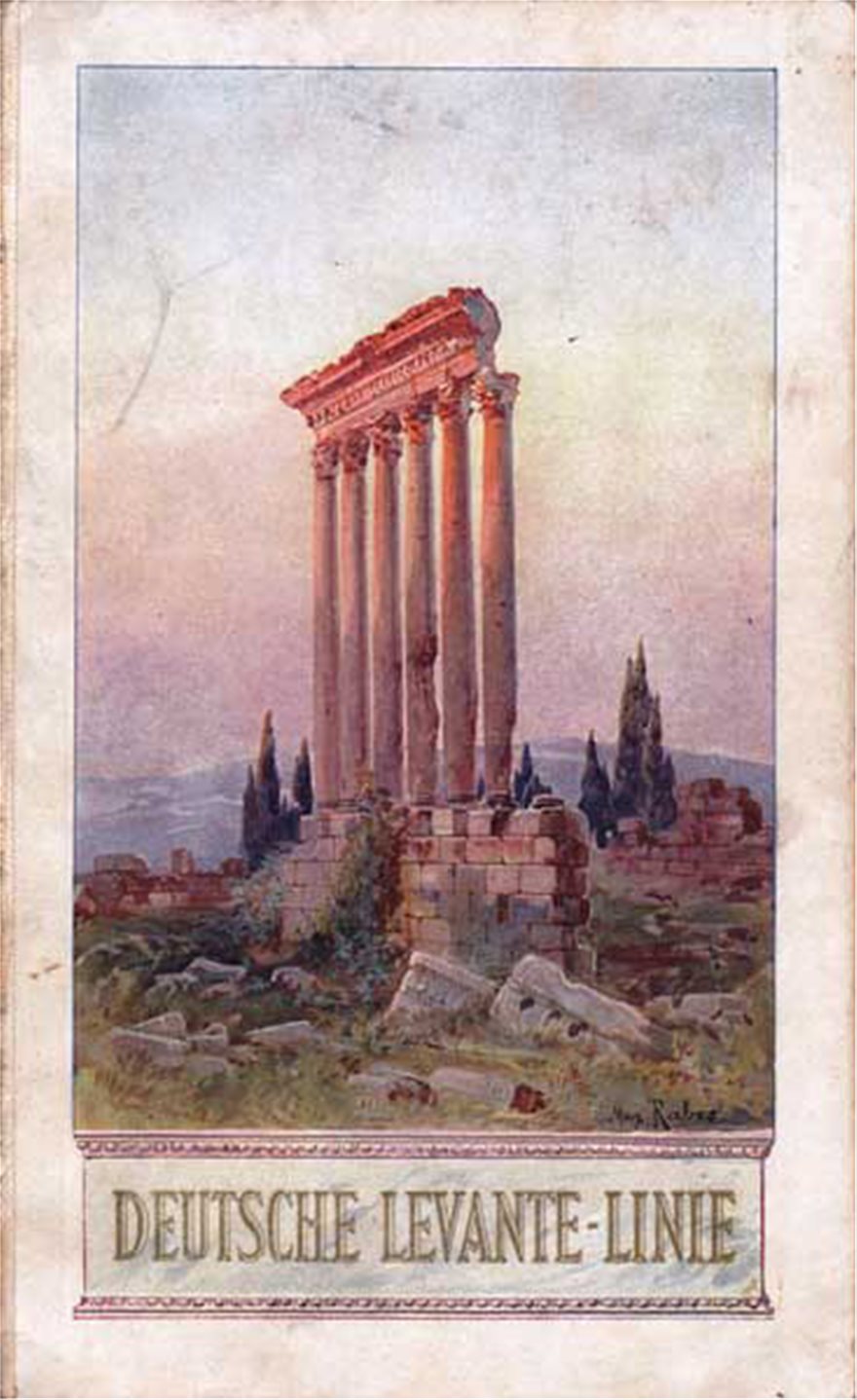
Events after 1912
In 1909, the New Turks bought, on credit from the Germans, two old battleships, the "Frederick William" and the "Weisselburg", which were brought by German officers and German crews.
The ships were renamed "Hayreddin Barbarossa" and "Torgut Reis"!
Greece crushes the Turks in the Balkan Wars and Admiral Pavlos Kountouriotis with the battleship "Averoff" liberates the Aegean islands one after the other. His invitation to the commander of the Turkish fleet, Ramiz Bey, after the liberation, unfortunately, of Tenedos, has become historic: "We have occupied Tenedos. We expect your fleet to leave. If you want coal, I intend to supply it to you" (October 24 / November 6, 1912). The Turkish fleet, however, is hiding day and night.
And when they came out of their hiding place, of course, they suffered a double disaster (naval battles of Elli and Lemnos). The issue of the islands and northern Greece, by decision of the London Conference, was referred to the Ambassadorial Conference. There, Germany, Austria-Hungary and Italy do their best not to give Greece the Aegean islands and Northern Epirus.
Finally, with the support of British Foreign Secretary Sir Edward Gray, the islands are given to Greece. Despite the strong reactions of Turks and Germans, who went so far as to propose that the Ottoman Empire be given Lesvos and Chios and that Rhodes, then under Italian occupation, be ceded to Greece. With the insistence of Britain, France and Russia, the Aegean islands are finally given to Greece, but not Tenedos and Imvros.
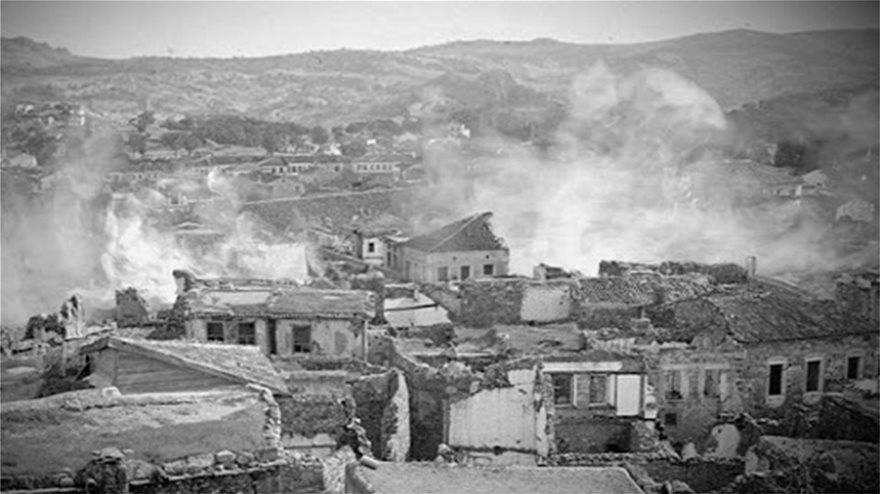
The persecutions of the Greeks in Thrace and Asia Minor
And while the Germans continue their penetration in Asia Minor, the New Turks decide after the loss of many territories, to entrust the reorganization of their army to the Germans. The head of 50 German officers is Liman von Saunders, whom we mentioned earlier.
When asked by the Germans how they assess the presence of Greeks in Asia Minor and Thrace, they replied:
"Turkey has no security, nor can it organize freely in the future, due to the presence of hostile elements, inspired from outside with a revolutionary idea"!
Therefore, the moral perpetrator of the persecutions against the Greeks in Thrace and Asia Minor, was Germany.
Let us see the results of the persecutions of the Greeks in Thrace.
Expelled:
Gallipoli Region 24,636 Greeks, Myriophyto 2,210, Constantinople Suburbs 7,000, Saranda Ekklision Province 21,150, Redestos-Makras Gefyra Province 15,130.
From the Turkish-occupied region of Didymoteicho, until 8/24/1915 when the area was given to the Bulgarians, 5,366 were displaced. By the end of World War I, 150,000 Greeks had been displaced from Thrace!
In May 1914, the persecution of the Greeks, always under German guidance, extended to Asia Minor. Greek fishermen on Englezonisi, in front of the Gulf of Smyrna, were killed by Turkish soldiers in an ordered service (June 1914), as witnessed by French archeologists. Those persecuted who could not come to Greece were sent to the interior of Anatolia to be exterminated.
According to the Ecumenical Patriarchate, by the end of 1914, 153,890 Greeks had been displaced from the coasts of Asia minor to the interior. Of course, persecutions also took place in Pontus. Of the 500,000 Greeks living there before World War I, 235,000 were displaced and 80,000 fled to Russia.
As for Liman von Saunders, on a tour of Asia in the presence of Greek bishops, he said of the Greeks to the Turks: "These here, what do you keep them? " And pointing to the Greek schools, he said: "As long as you leave them here, you will be the helots of the Greeks"
This article first featured on Proto Thema and is authored by Michalis Stoukas.
The views of the author do not necessarily reflect those of Greek City Times.


